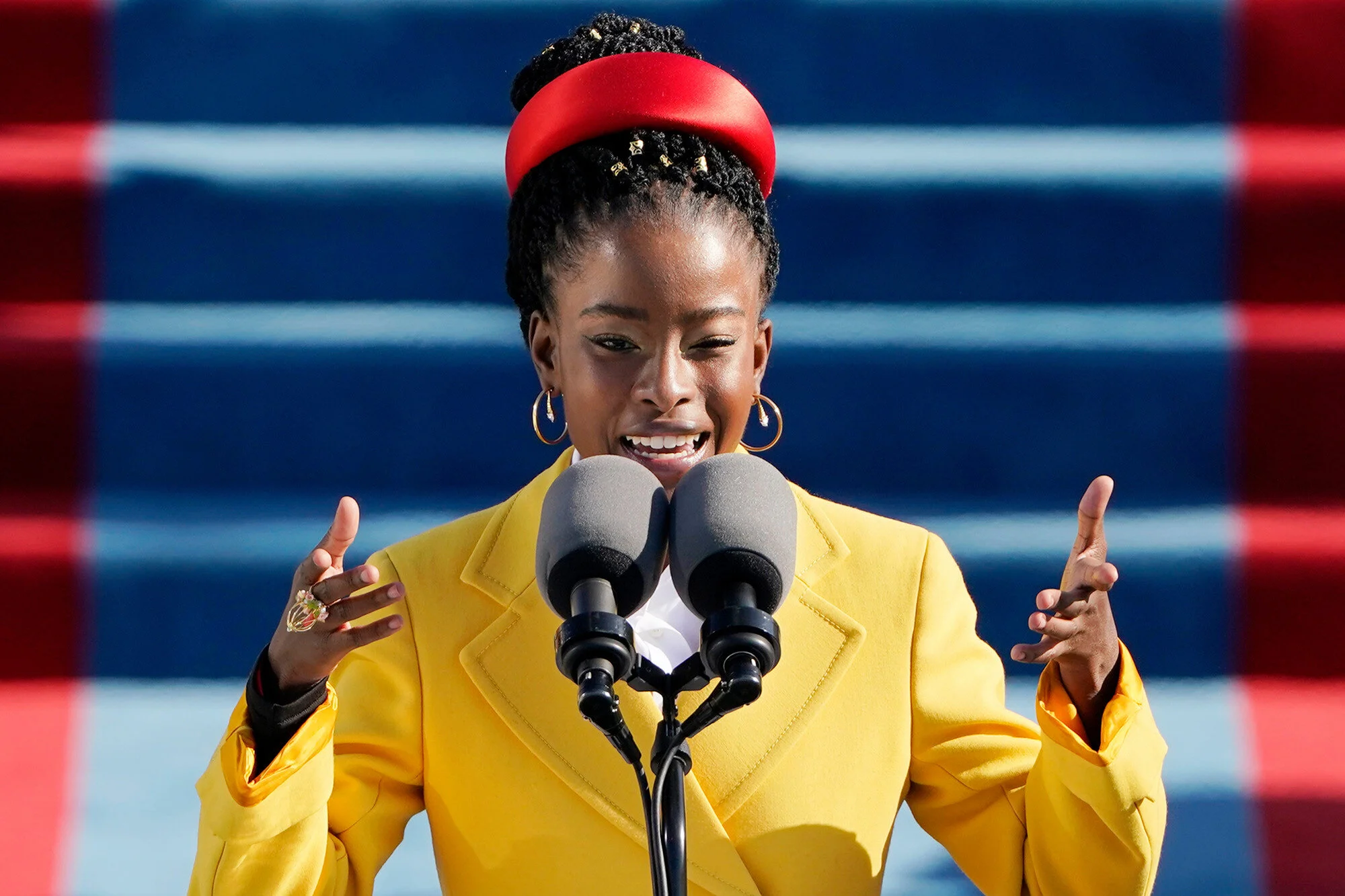Without Coretta Scott King, There Would Be No MLK Day.
History has a way of minimizing and erasing the critical roles that women have played in leading monumental social change.
On this national holiday, Dr. Martin Luther King, Jr. Day, there is one woman deserving of all of our credit and flowers: Mrs. Coretta Scott King.
As we celebrate the change that grew from Martin Luther King’s fight for racial justice, we must also celebrate Mrs. King, who helped him form his political identity, was vital in strategizing in the movement, and was responsible for cementing the MLK legacy into our nation’s fabric after his death.
Coretta Scott King, widow of the slain civil rights leader Dr. Martin Luther King, Jr., speaks at an anti-war rally in New York's Central Park, April 27, 1968.
( Anonymous, Associated Press) / AP Images )
““I am made to sound like an attachment to a vacuum cleaner, the wife of Martin, then the widow of Martin, all of which I was proud to be. But I was never just a wife, nor a widow. I was always more than a label.””
Coretta Scott King was not only the beautiful and supportive wife to Dr. King as history books might lead you to believe. She, like many other women of Black liberation movements, was central to MLK’s political success, and also was a radical force in her own right.
Coretta’s devotion to racial justice began while she attended Antioch College, where she was involved in the campus’ NAACP chapter, the Race Relations, and Civil Liberties Committees, and a number of other peace-centered initiatives.
Stanford History professor and director of the MLK, Jr. Research and Education Institute, Clayborne Carson, describes Coretta as being “more politically active at the time they met than Martin was.” Coretta was critical of the war in Vietnam and American economics before it was on Martin’s radar. Letters they exchanged in their courtship show that Coretta introduced Martin to socialist texts like Edward Bellamy’s Looking Backward. It is clear that from the very beginning Coretta was not only a compliment to Martin’s politics, but sometimes the one driving his evolution.
“I once told Martin that although I loved being his wife and a mother, if that was all I did I would have gone crazy. I felt a calling on my life from an early age. I knew I had something to contribute to the world.”
Coretta’s Role in the Civil Rights Movement
Throughout the Civil Rights Movement, Coretta was much more than an accessory to Dr. King. As her husband gained attention on the national stage, Coretta was the one who urged him behind the scenes to make nonviolence his most prominent international philosophy. As Martin wavered in public objections to the Vietnam war because of criticisms he received, Coretta was consistent in her public protest of United States militarism.
Coretta also spearheaded a number of her own initiatives in this time. In 1957, Coretta served as a co-founder of the National Committee for a Sane Nuclear Policy (SANE). She accompanied Dr. King on many of his global trips including his 1959 five-week trip to India where he studied Gandhi’s work. In 1962, she was a delegate for the Women’s Strike for Peace to the seventeen-nation Disarmament Conference in Geneva, Switzerland.
During the historic Montgomery Bus Boycott, she was essential to the development of the movement and vital to the creation of an image of the King family as one that could not be erased by intimidation. She was often the sole voice on the front lines of the hate that Martin’s speaking attracted: the one to resist when bigots attempted to bomb their home, the one to answer the phone when cynics called with threats.
Coretta Scott King speaking at the Houston Civic Center (Image: CORBIS).
How Coretta Built an MLK Legacy
Following the assassination of Martin Luther King, Jr., Coretta was left with a decision to make: she could retreat from the public eye and allow her husband’s legacy to be overshadowed by his senseless death. Or, she could continue the ongoing fight that he took up for racial and economic justice, ensuring that MLK was remembered as one of America’s most revolutionary minds. Coretta chose the latter and worked for the remainder of her life to widen the reach of her husband’s advocacy and make sure that his dream would never be erased from this country’s history.
After her husband’s death, Coretta took up the fight not only for Black Civil Rights, but for broader human rights. She continued her work with anti-war movements, she was a zealous advocate for gender equality (even helping to found the National Organization for Women), and she advocated for LGBTQ+ rights and same-sex marriage.
Coretta continued the work of building a poor people’s movement, taking a steadfast stance in her advocacy for welfare rights and economic justice (a stance her husband kept distance from in his public life) and eventually launching the Poor People’s Campaign.
While Coretta pursued her own initiatives, much of her work following MLK’s assassination was in an effort to preserve her husband’s legacy— to signal that the work he bravely began would not end with his life. She immediately began to garner support for the Martin Luther King, Jr., Center for Nonviolent Social Change.
Woman Power in Action for Peace Conference at Wisconsin University, Milwaukee in 1969.
Making Martin Luther King Day a National Holiday
In the 70s and 80s, after Martin Luther King’s death and as the Civil Rights movement began to lose its visibility, Coretta launched a campaign to establish a national holiday in honor of her late husband. Coretta testified before the Senate Judiciary Committee and joint congress in 1979 to urge the passing of the national King holiday bill. She mobilized the connections she made through the King Institute and support from the Southern Christian Leadership Conference (SCLC) that King lead formerly to organize citizens nationwide, gaining 3 million+ signatures on different petitions for the holiday. The bill eventually gained support from the Jimmy Carter administration but unfortunately was shot down by the House of Representatives by 5 votes in November of 1979.
The rejection of the bill was a small setback in Coretta’s eyes and she quickly got back to work. This time enlisting the help of Motown singer Stevie Wonder, who in 1980 wrote a song in celebration of Dr. King’s birthday (also known as the Black Happy Birthday song).
The song sent waves through the music charts and helped to garner widespread support for the holiday. Three years later, in January of 1983, more than 100,000 people gathered at the Washington Monument in support of the holiday. With financial support from Stevie Wonder, Coretta was able to continue her lobbying efforts, gaining more than 6 million signatures on petitions to congress for the holiday bill.
The fight to pass the bill in the House this time around was smooth, the King Holiday was passed by an overwhelming vote of 338-90. However, the fight in the senate was significantly more quarrelsome, with a number of Senators working to diminish King’s reputation and dismiss calls for a national holiday in his honor. Finally, in the fall of 1983 the holiday bill was passed by a vote of 78-22.
Dr. Martin Luther King Jr. arrives in Montgomery, Alabama on March 25th 1965 at the culmination of the Selma to Montgomery March. Pictured from left, Ralph Bunche, Dr. Martin Luther King, Jr., Coretta Scott King, Rev. Fred Shuttlesworth, Hosea Williams. Decades later, an internship at the Martin Luther King Jr. Center for Nonviolent Social Change in Atlanta would change Cary Clack’s life. (Photo: Morton Broffman/Getty Imges)







